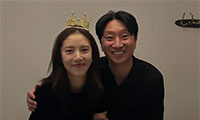Racism
Racism and intolerance are concepts that reliably provoke discomfort when brought up. Why? When I spoke with two people of different ethnicities, there was a strikingly similar pattern in their responses to the topic of racial inequality. One interviewee provided me the cutting insight that I was not alone in witnessing racism; discrimination is never very elusive. But the body language of the second was also telling: despite his readiness to praise human unity, I could see him literally wince at the prospect of changing old ways.
It was once difficult for me to comprehend the severity of racism. For instance, whenever the compliment “you’re so smart” was followed by “because you’re Asian,” I felt insulted. With no manifest negative connotations, what’s my concern? The inflection in people’s voices as they tell me I “am smart because I am Asian” is like adding salt to an open wound, even though I recognize the intentions are benign. The trope of the lovable but unattractive Asian nerd is not vicious, but such sweeping generalizations are a block to human evolution.
We humans may have advanced in our thinking, but false evidence lingers in memories of the past. Even the milder prejudices I have been subjected to are etched in my mind. When I was in 1st grade, the way others stared when I talked to my family in their words let me know we were “different.” One day, a non-Asian woman asked my mother for directions, enunciating her words slowly. My mother replied with a mixture of her words and mine, but the woman impatiently demanded the same answer from me; I replied hesitantly. The woman’s audible annoyance rang in my ears. At that moment, I did what an upset child might: I blamed my mother for the woman’s mistakes. Years have passed now and I would do anything to reverse my childish betrayal, but as this is impossible, I apologized to my mother in her words, our language.

Mina Choi / Marymount High School 10th Grade
<Mina Choi / Marymount High School 10th Grade>
스마터리빙
more [ 건강]
[ 건강]이제 혈관 건강도 챙기자!
[현대해운]우리 눈에 보이지 않기 때문에 혈관 건강을 챙기는 것은 결코 쉽지 않은데요. 여러분은 혈관 건강을 유지하기 위해 어떤 노력을 하시나요?
 [ 건강]
[ 건강]내 몸이 건강해지는 과일궁합
 [ 라이프]
[ 라이프]벌레야 물럿거라! 천연 해충제 만들기
 [ 건강]
[ 건강]혈압 낮추는데 좋은 식품
[현대해운]혈관 건강은 주로 노화가 진행되면서 지켜야 할 문제라고 인식되어 왔습니다. 최근 생활 패턴과 식생활의 변화로 혈관의 노화 진행이 빨라지고
사람·사람들
more
[한인단체 신년 인터뷰] 명원식 파바월드 회장… “한인 차세대 바르게 성장하는 토대 최선”
“한인 차세대들이 바르게 자랄 수 있는 토대를 만드는 것이 제가 파바월드의 회장으로 존재하는 유일한 이유입니다”한인사회의 대표적 청소년 봉사 …

LA한인회 멘토 프로그램 10일 스티브 강 위원장
LA 한인회(회장 로버트 안)가 한인사회 차세대 인재양성 노력의 하나로 ‘멘토를 만나다’ 프로그램을 정례화해 실시하고 있는 가운데 그 세 번째…
미주 한인의 날 기념… 잇달아 ‘코리안 나잇’
미주 한인들의 역사와 성취, 그리고 미국 사회에 기여해 온 발자취를 기리는 1월13일 ‘미주 한인의 날’을 맞아 LA의 주요 프로 스포츠 구단…
‘K-팝의 미래’ 세미나 16일 LA 문화원 개최
LA 한국문화원(원장 이해돈)은 세계한류학회(WAHS)와 함께 오는 1월16일(금) ‘케이팝 데몬 헌터스와 케이팝의 미래 세미나 및 라운드테이…
[한인단체 신년 인터뷰] LA 한인회 로버트 안 …
“더욱 적극적이고 실질적인 서비스로 한인들의 어려움을 돕고, 한인사회 발전에 앞장서겠습니다.”2026년 병오년 새해를 맞아 LA 한인회 로버트…
많이 본 기사
- 일자리 위협하는 AI, 전문직도 대체한다… 컴퓨터 전공·로스쿨 졸업생들도 ‘취업난’ 극심
- ‘비자 보증금’ 대상 확대… 최대 1만5천달러 내야
- 첨단기술 ‘CES 2026’ 개막… 행사장에 몰린 구름 관람객
- ‘불륜 논란’ 숙행, 15일 상간녀 ‘위자료 1억’ 소송 선고
- 손담비, 시동생 성폭행 ‘악플 소송’ 냈다.. “50만원 배상하라”
- 연방대법 9일 중대 판결 “상호관세 결정 가능성”
- ‘마구잡이 이민단속’ 제한 법안 속속 진전
- 뉴욕시 ‘숨은 수수료’ 퇴출 나섰다
- VA 재무차관에 한인 제임스 허
- ‘콜록콜록’ …워싱턴 독감환자 폭증
- ‘전혜진 남편’ 故 이선균 묘비에 새긴 절절 고백.. ‘사랑해’
- [신년 집중기획/ 한인 정치력 신장 원년으로] 중간선거의 해… “투표 통해 한인 공직자 늘려야”
- “숫자 다루는 직업이지만 사람간 소통 · 신뢰가 먼저죠”
- “예년보다 빠르고 거세다”
- 17년 만에 지상파 3사 다 뚫었다..김준수, SBS ‘미우새’ 출격
- 뉴욕한인회 음갑선 수석부회장 인준
- “유튜버 될 수 있어요” 무료 특강
- 차세대 리더 양성 위한 협력 강화
- 한인타운 노래방 협회 발족한다
- 마두로 사태 ‘중남미 최정예’ 쿠바 굴욕
- 아시안유권자연맹, 그레이스 멩 공식 지지
- “사면 감사합니다. MAGA는 영원하다”
- 태권도·한국문화 공로자에 표창
- 조국사랑미주연합 · 한미충효회, 제9회 신년하례 초청모임
- 메디케어 보험 가입 마감 31일까지 연장
- 레이건 前대통령 장남 마이클 레이건 별세… “부친 유산지킨 수호자”
- 공영방송공사 결국 해산 트럼프 예산중단에 백기
- 다우, 첫 49,000 돌파 증시 연초 랠리 지속
- LAX 진입로 혼잡 극심 이번주 시설철거 공사
- GCF 워싱턴, 신임회장 김신아 호(號) 출범
- 마크 레빈 뉴욕시 감사원장 취임식
- 컴퓨터 전공·로스쿨 졸업생들도‘취업난’극심
- 서울고 총동창회 홍희경 전 회장에 감사패
- 순회영사, 10일 커뮤니티센터서
- 모어 MD 주지사, 한인 등 아태계 기금모금 행사
- 노키아의 ‘피벗 DNA’… 몰락했던 휴대폰 거인, 엔비디아 손잡고 부활 신호탄 쏜다
- ‘윌셔·버몬트’ 메트로역 폭발물 의심물체 소동
- [마크 A. 시쎈 칼럼] 트럼프의 20가지 업적
- 케네디에 관한 네 개의 이야기
- 40명 사망 스위스 술집, 6년간 소방점검 없었다
- 경찰, 박나래·키 ‘주사 이모’ 압수수색..수사 본격화
- [CES 2026 라스베가스서 개막] 인공지능 두뇌 장착 로봇… 완전체 자율주행차도
- 한인, 주 재무차관에… 버지니아 제임스 허씨
- “2026년도 힘찬 활동”… LA 평통 시무식
- 홈플러스 41개 매장 폐점 제시… 노조 반발 넘을까
- 캘리포니아, 이혼 수수료 저렴해진다
- 머스크의 AI ‘그록’ , 아동 성적 이미지 양산 비판 쇄도
- 미국서 비만 치료제 시장 전쟁 ‘본격’
- [미국은 지금] 2026년 ‘손님’ 의식 버리고 ‘주인’ 입장을
- 외교의 파고 앞에서 놓쳐서는 안 될 것
1/5지식톡

-
 미 육군 사관학교 West Poin…
0
미 육군 사관학교 West Poin…
0https://youtu.be/SxD8cEhNV6Q연락처:wpkapca@gmail.comJohn Choi: 714-716-6414West Point 합격증을 받으셨나요?미 육군사관학교 West Point 학부모 모…
-
 ☝️해외에서도 가능한 한국어 선생님…
0
☝️해외에서도 가능한 한국어 선생님…
0이 영상 하나면 충분합니다!♥️상담신청문의♥️☝️ 문의 폭주로 '선착순 상담'만 진행합니다.☎️ : 02-6213-9094✨카카오톡ID : @GOODEDU77 (@골뱅이 꼭 붙여주셔야합니다…
-
 테슬라 자동차 시트커버 장착
0
테슬라 자동차 시트커버 장착
0테슬라 시트커버, 사놓고 아직 못 씌우셨죠?장착이 생각보다 쉽지 않습니다.20년 경력 전문가에게 맡기세요 — 깔끔하고 딱 맞게 장착해드립니다!장착비용:앞좌석: $40뒷좌석: $60앞·뒷좌석 …
-
 식당용 부탄가스
0
식당용 부탄가스
0식당용 부탄가스 홀세일 합니다 로스앤젤레스 다운타운 픽업 가능 안녕 하세요?강아지 & 고양이 모든 애완동물 / 반려동물 식품 & 모든 애완동물/반려동물 관련 제품들 전문적으로 홀세일/취급하는 회사 입니다 100% …
-
 ACSL 국제 컴퓨터 과학 대회, …
0
ACSL 국제 컴퓨터 과학 대회, …
0웹사이트 : www.eduspot.co.kr 카카오톡 상담하기 : https://pf.kakao.com/_BEQWxb블로그 : https://blog.naver.com/eduspotmain안녕하세요, 에듀스팟입니다…
케이타운 1번가
오피니언
 정숙희 논설위원
정숙희 논설위원케네디에 관한 네 개의 이야기
 마크 A. 시쎈 / 워싱턴포스트 칼럼니스트
마크 A. 시쎈 / 워싱턴포스트 칼럼니스트 [마크 A. 시쎈 칼럼] 트럼프의 20가지 업적
 김동찬 시민참여센터 대표
김동찬 시민참여센터 대표 [미국은 지금] 2026년 ‘손님’ 의식 버리고 ‘주인’ 입장을
 이현숙 수필문학가협회 이사장
이현숙 수필문학가협회 이사장 [수요 에세이] 이젠 끝이다 “Nevermore, Nevermore”
 최형욱 / 서울경제 논설위원
최형욱 / 서울경제 논설위원 [만화경] ‘가짜 일’ 줄이기
 민경훈 논설위원
민경훈 논설위원도널드 W 부시와 이라크 전의 추억
 황의경 사회부 기자
황의경 사회부 기자 타국에서, 다시 ‘우리’를 생각하다
 박원곤 이화여대 북한학과 교수
박원곤 이화여대 북한학과 교수 [백상논단] 붉은 말의 해, 한반도에 다시 오는 분기점
 홍용희 수필가
홍용희 수필가 [화요칼럼] 내 안의 바위
1/3지사별 뉴스

뉴욕시 ‘숨은 수수료’ 퇴출 나섰다
뉴욕시가 일반 소비 시장에 만연해 있는 ‘숨은 수수료’(Junk fee) 근절에 나섰다. 조란 맘다니 뉴욕시장은 5일 ‘숨은 수수료’ 및 ‘…
‘마구잡이 이민단속’ 제한 법안 속속 진전

VA 재무차관에 한인 제임스 허
30대 중반의 한인 제임스 허 씨(사진)가 버지니아 재무차관(Deputy Secretary of Finance)에 내정됐다. 아비가일 스팬버거…
‘콜록콜록’ …워싱턴 독감환자 폭증

‘안면 인식’으로 불체자 확인·체포한다
트럼프 행정부의 초강경 이민 단속 기조 속에 불법체류자 단속을 위해 안면 인식 기술이 본격적으로 활용되고 있어 논란이 커지고 있다. 4일 월스…
중부 캘리포니아 ‘한인 이민사’ 나왔다

오늘 하루 이 창 열지 않음 닫기 


















































.png)


댓글 안에 당신의 성숙함도 담아 주세요.
'오늘의 한마디'는 기사에 대하여 자신의 생각을 말하고 남의 생각을 들으며 서로 다양한 의견을 나누는 공간입니다. 그러나 간혹 불건전한 내용을 올리시는 분들이 계셔서 건전한 인터넷문화 정착을 위해 아래와 같은 운영원칙을 적용합니다.
자체 모니터링을 통해 아래에 해당하는 내용이 포함된 댓글이 발견되면 예고없이 삭제 조치를 하겠습니다.
불건전한 댓글을 올리거나, 이름에 비속어 및 상대방의 불쾌감을 주는 단어를 사용, 유명인 또는 특정 일반인을 사칭하는 경우 이용에 대한 차단 제재를 받을 수 있습니다. 차단될 경우, 일주일간 댓글을 달수 없게 됩니다.
명예훼손, 개인정보 유출, 욕설 등 법률에 위반되는 댓글은 관계 법령에 의거 민형사상 처벌을 받을 수 있으니 이용에 주의를 부탁드립니다.
Close
x